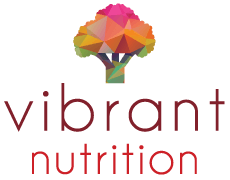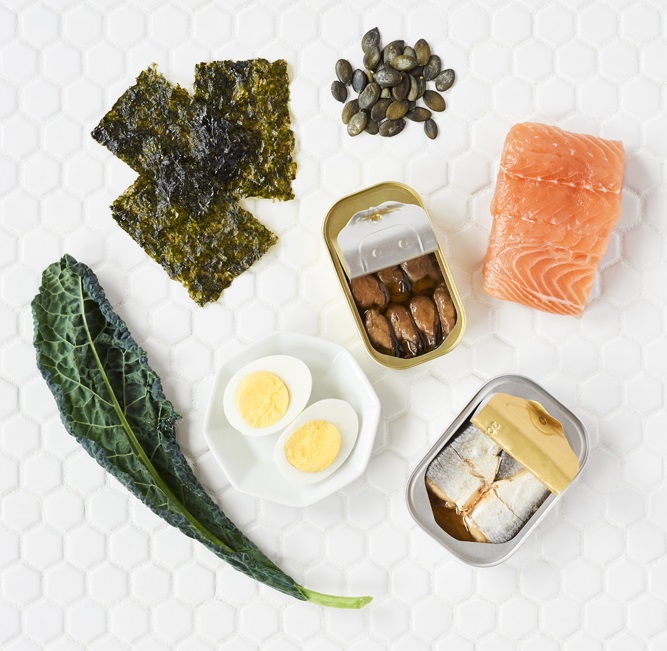February 16th, 2021
The Top 10 Food Myths I bust. Every. Dang. Week.
There’s too much information about nutrition, diet and healthy eating on social media and the internet at large. I say “too much” because a lot of it is false—not based on fact or science—even though it’s widely believed. Here are the top food myths I wade through when working with clients.
- Myth: Everyone needs eight cups of water per day. The amount of water you need depends on your age and activity level. There is no universal right amount of water to drink per day. Infants need none and some adults may need more than 12 cups, so you have to find the right amount for you. Also don’t forget, if you eat a whole food diet, we can get up to 25 percent of our water from foods. Hydrating liquids such as homemade soup, some tea and milk can also be included in your fluid total.
- Myth: Lemon water is “magical”. It’s delicious, adds tang, taste and a little bit of vitamin C (ascorbic acid) to your water BUT, it doesn’t magically change your health. It won’t cut fat, improve weight loss, wake up your organs, reduce blood sugar or calories, increase your metabolism or make you thinner or happier. Sorry!
- Myth: Apple cider vinegar is also “magical”. Similar to lemon water, ACV won’t do anything magical to you. It’s a vinegar, but no, it’s not as strong as your stomach acid, so it won’t help you digest food better or burn more calories or cut fat or prevent weight gain. It can be extremely risky to drink. You can burn your stomach lining and esophagus and damage your teeth if you drink it alone. Use it as a lovely salad dressing or cooking ingredient!
- Myth: You need to “wake up” your digestive system. News flash, your digestive system is awake. In a healthy human being, digestion is controlled by many unconscious automatic systems and doesn’t require any special food or cues from you! Of course, stimulants like caffeine or things like fibre and fluid can affect how it works over time, but the peristaltic movements of your bowels are not controlled consciously by you or any external alarm clock.
- Myth: there are Alkaline and Acid diets, and they affect your pH. This food myth is totally ridiculous! It’s absurd. The pH of your bloodstream is the most tightly regulated number in your body. If it changes a smidge, that can land you in an ICU. The acid in your stomach is powerful and acidifies everything you eat so that nutrients can be absorbed in your small bowel. The reason people think this “diet” works is because they start eating more fibre and brightly coloured and leafy green veggies, less processed foods and poof, they feel awesome. But it’s certainly not because of the “acid/alkaline” rating of particular foods.
- Myth: Some foods burn calories. Wouldn’t that be easy? But this is not true. No foods make your body burn more calories, only a calorie-deficit—meaning consuming fewer calories than your body burns in a day—helps with weight loss, regardless of the types of food you eat. More proof you can eat what you love!
- Myth: Is soy bad for you? Does soy cause cancer? The short answer is no. There is a lot of misunderstanding around this nutrition myth, particularly about whole soy foods versus highly processed, extracted soy foods. A lot of what you read online refers to the latter. Whole soy foods such as fortified plain soy beverage, plain tofu and edamame have been shown in the literature to help to reduce risk of breast, prostate and colon cancers. They have even done studies in women who have been treated for breast cancer, and consuming whole soy foods did not increase their risk, and instead lowered their risk of cancers. Whole soy foods contain complete protein, calcium, iron and phytochemicals such as isoflavones that are beneficial to human cardiovascular health. There is oodles of evidence to support this. Now eating “cheezy” crackers with extracted soy protein holding the flavour on them, not the same thing! That’s an ultra-processed food and not helpful in a whole food diet.
- Myth: You should have a “cheat day” every week. Yes, this is a ridiculous, triggering and negative concept that doesn’t fit into a healthy lifestyle. If you eat a balanced diet that includes all foods, especially built on foods you enjoy, you shouldn’t have to “cheat”. Food is not good or bad, you are not being “good” when you eat vegetables or what you consider healthy food. And you’re not “bad” when you eat chocolate, ice cream or so-called junk food. Diets are stupid. The concept of cheating on a weekend day can mean going overboard and bingeing. It’s better to pepper your week with your favourite foods so you never feel deprived and get results. Work with a professional to find the right balance.
- Myth: Is coffee bad for me? This is one of the most common food myths. Coffee is good for you! Well, er, most of you. I am talking about good quality freshly ground beans (not instant stuff); they are packed with antioxidants and phytochemicals which can be protective to the brain and liver and diabetes prevention. The trick is to know how caffeine affects you; and if you know, you know! Some of us are fast or slow metabolizers of caffeine, making its effects stronger and longer. If you get palpitations, poor sleep, anxiety or irritability when you drink coffee, it’s not for you. Also, if you fill your coffee with sugar, you may be doing more harm than good.
- Myth: You need to be a certain weight to be healthy. NOPE. There is a prevailing myth that you need to be a certain weight or “ideal” weight to be healthy. Just. Not. True. A 2018 metanalysis showed that the top three factors that affect you being healthy are 1) Your fitness level 2) Quitting cigarette smoking 3) Diet quality (meaning a better quality, healthy diet is protective). Our bodies are all different; a Caribbean woman most certainly has a different body composition and shape than a Dutch woman or a Sri Lankan woman. Just because one of them will be classed artificially at a higher BMI does not indicate poor health. BMI is a useless and racist tool to evaluate something that cannot be compared! If your body weight is made up of mostly fat around your mid-section, if it affects or limits the way you move or causes you pain or discomfort, those are all great reasons to start to shift and get healthier. Do it for yourself, and your life, and not because someone else says a particular weight is “healthy”. And please, whatever you do, do NOT discuss your child’s body weight with them. Use this link and call me instead.


